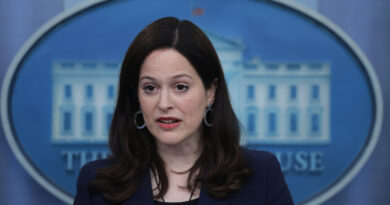China Discriminates Against European Medical Device Suppliers in Procurement, EU Says
The EU stands ready to take “decisive action to defend the level playing field” and “support fair competition,” trade chief of the 27-nation-bloc says.
A European Union investigation has confirmed that discrimination against European medical device suppliers exists in China’s public procurement market, the bloc’s executive arm announced on Jan. 14, weighing potential new restrictions amid escalating trade tensions with Beijing.
“Openness needs to be reciprocal,” Sefcovic said.
‘Serious and Recurrent Impairment of Access’
In a separate report released on Jan. 14, the Commission outlined its investigators’ findings, revealing that the Chinese regime has implemented a multilayered system of legal measures and policies that favor domestic medical device manufacturers over foreign competitors.
An industrial program aimed at transforming China into a high-tech manufacturing hub by 2025 has pressured hospitals nationwide to procure from domestic producers, according to the report.
The EU’s investigators found that the Chinese regime also established a procurement system that incentivizes companies to win tenders by offering prices that are often unsustainable for profit-driven foreign firms. Beijing’s state support for local medical manufacturers enables them to offer even lower bids, according to the report. In some cases, the Commission found that such state support leads to price cuts exceeding 90 percent, effectively pushing foreign companies out of the market.
“[T]he Commission has reached the conclusion that the measures and practices identified in the course of the investigation, put in place by the PRC with respect to the procurement of medical devices, exist and are applied across the entire territory of the PRC,” the Commission stated in the report, using the acronym of the regime’s official name, the People’s Republic of China.
“The PRC has not proposed any specific corrective action to remedy this serious and recurrent impairment of access.”
Trade Tensions
Brussels’ findings were released amid heightened trade tensions with Beijing, particularly following a series of tit-for-tat actions last year.
On Jan. 14, the Chinese communist regime leader Xi Jinping told European Council President Antonio Costa that there were “no fundamental conflicts of interest or geopolitical contradictions” between the two sides.
“China has confidence in the EU and hopes that the EU can also become a reliable partner for China,” Xi told Costa, according to the readout released by Beijing’s foreign ministry.
As of the time of publication, the EU had not issued a readout of the conversation.
These trade disputes unfold as the Chinese regime grapples with an economic downturn at home while facing increasing pressure from its key trading partners, especially the United States.





